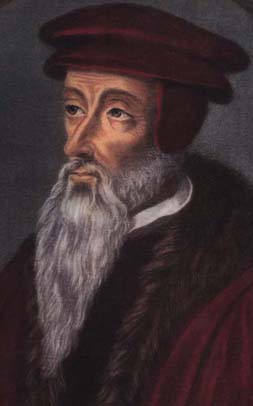
Unlike some other second-generation Reformers, we do not have to read between the lines to find a two-kingdoms doctrine in Calvin. On the contrary, he is far less ambiguous even than Luther in setting it out at the center of his theology, inviting the question of why Calvin studies have until recently largely ignored the theme. The doctrine appears in the all-important chapter III.19 of the Institutes, as Calvin concludes his discussion of justification and prepares to transition to his massive Bk. IV, entitled “The External Means or Aids By Which God Invites Us Into the Society of Christ and Holds Us Therein.” Inasmuch as Calvin scholarship has attended at all to his two-kingdoms idea, it has frequently assumed, as VanDrunen does, that in delineating the “two kingdoms,” Calvin intends to delineate the two distinct institutions within this sphere of external means—church and state. However, from a structural standpoint, it is more compelling to see his distinction of the two in III.19 as a center-post, with the “spiritual government” pointing back to his discussion of the inward reception of the grace of Christ in Book III, and the “temporal government” pointing forward to his discussion of the external means in Bk. IV—on this basis, both the visibly-organized church and the state would constitute external means in the temporal kingdom. Certainly Calvin’s word choice in describing the two seems to bear out such a reading…